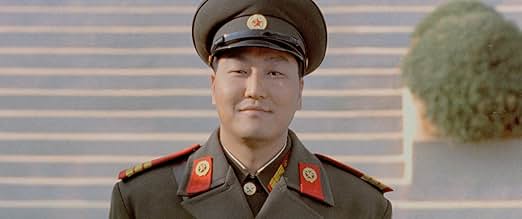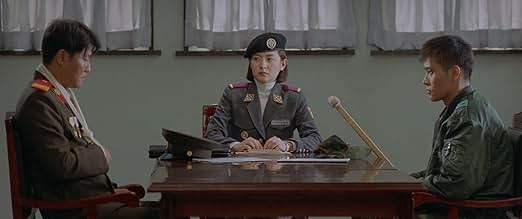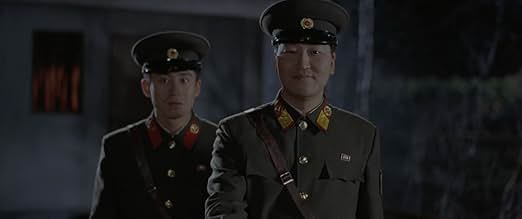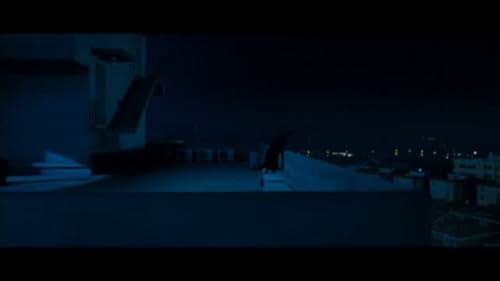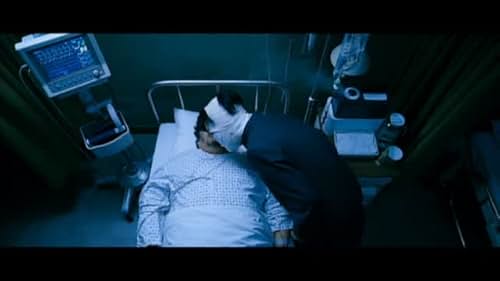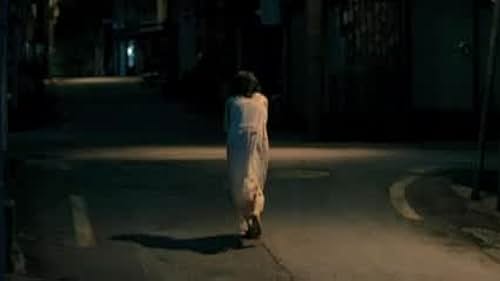Song Kang-ho(I)
- Actor
Song Kang-ho never professionally trained as an actor, beginning his
career in social theater groups after graduating from Kimhae High
School. Later, he joined Kee Kuk-seo's influential theater company with
its emphasis on instinctive acting and improvisation, which proved to
be Song's training ground. Although regularly approached to act in
films, he always turned down the opportunity until taking a role as an
extra in Hong Sang-soo's
Daijiga umule pajinnal (1996).
In the following year, after portraying one of the homeless in
Jang Sun-woo's docu-drama
Nappun yeonghwa (1997), he gained
cult notoriety for his scene-stealing performance in
Neung-han Song
Songneunghan (1997) as a gangster training a group
of young recruits, winning his first Best Actor award.
Since that time he was cast in several supporting roles before his high-profile role as Han Suk-kyu's secret-agent partner in Kang Je-kyu's blockbuster thriller Swiri (1999). In early 2000, Song became a star with his first leading role in the box office smash Banchigwang (2000), for which he reputedly did most of his own stunts. But it was with his award-winning role as a North Korean sergeant in Gongdong gyeongbi guyeok JSA (2000) that Song has come to the forefront as one of Korea's leading actors. Song also starred in Park Chan-wook's Sympathy for Mr. Vengeance (2002), which centers around a father's pursuit of his daughter's kidnappers.
In 2002 Song starred in another major production by Myung Film titled YMCA Yagudan (2002), about Korea's first baseball team, which formed in the early 20th century. He came to international attention with the film Gwoemul (2006), which reunited him with director Bong Joon Ho. With Snowpiercer (2013), his third collaboration with Bong, he made his debut in an English-language film with international theatrical distribution.
In 2008 he starred in Kim Jee-woon's film Joeun nom, napun nom, esanghan nom (2008), where he played Tae-goo, the motorcycle-riding, walther-wielding counterpart to "The Good, the Bad and the Ugly"'s Tuco.
In 2015, Song Kang-ho works on 'The Throne', a period drama of palace intrigues par excellence and whose film is nominated that year for best non-English-language film and costumes at Satellite awards. Already in 2016 he makes his fourth collaboration with Korean director Kim Jee-woon and is none other than the critically acclaimed film "The Empire of Shadows." A period drama with a background of espionage intrigue with a very good technical bill.
Since that time he was cast in several supporting roles before his high-profile role as Han Suk-kyu's secret-agent partner in Kang Je-kyu's blockbuster thriller Swiri (1999). In early 2000, Song became a star with his first leading role in the box office smash Banchigwang (2000), for which he reputedly did most of his own stunts. But it was with his award-winning role as a North Korean sergeant in Gongdong gyeongbi guyeok JSA (2000) that Song has come to the forefront as one of Korea's leading actors. Song also starred in Park Chan-wook's Sympathy for Mr. Vengeance (2002), which centers around a father's pursuit of his daughter's kidnappers.
In 2002 Song starred in another major production by Myung Film titled YMCA Yagudan (2002), about Korea's first baseball team, which formed in the early 20th century. He came to international attention with the film Gwoemul (2006), which reunited him with director Bong Joon Ho. With Snowpiercer (2013), his third collaboration with Bong, he made his debut in an English-language film with international theatrical distribution.
In 2008 he starred in Kim Jee-woon's film Joeun nom, napun nom, esanghan nom (2008), where he played Tae-goo, the motorcycle-riding, walther-wielding counterpart to "The Good, the Bad and the Ugly"'s Tuco.
In 2015, Song Kang-ho works on 'The Throne', a period drama of palace intrigues par excellence and whose film is nominated that year for best non-English-language film and costumes at Satellite awards. Already in 2016 he makes his fourth collaboration with Korean director Kim Jee-woon and is none other than the critically acclaimed film "The Empire of Shadows." A period drama with a background of espionage intrigue with a very good technical bill.


